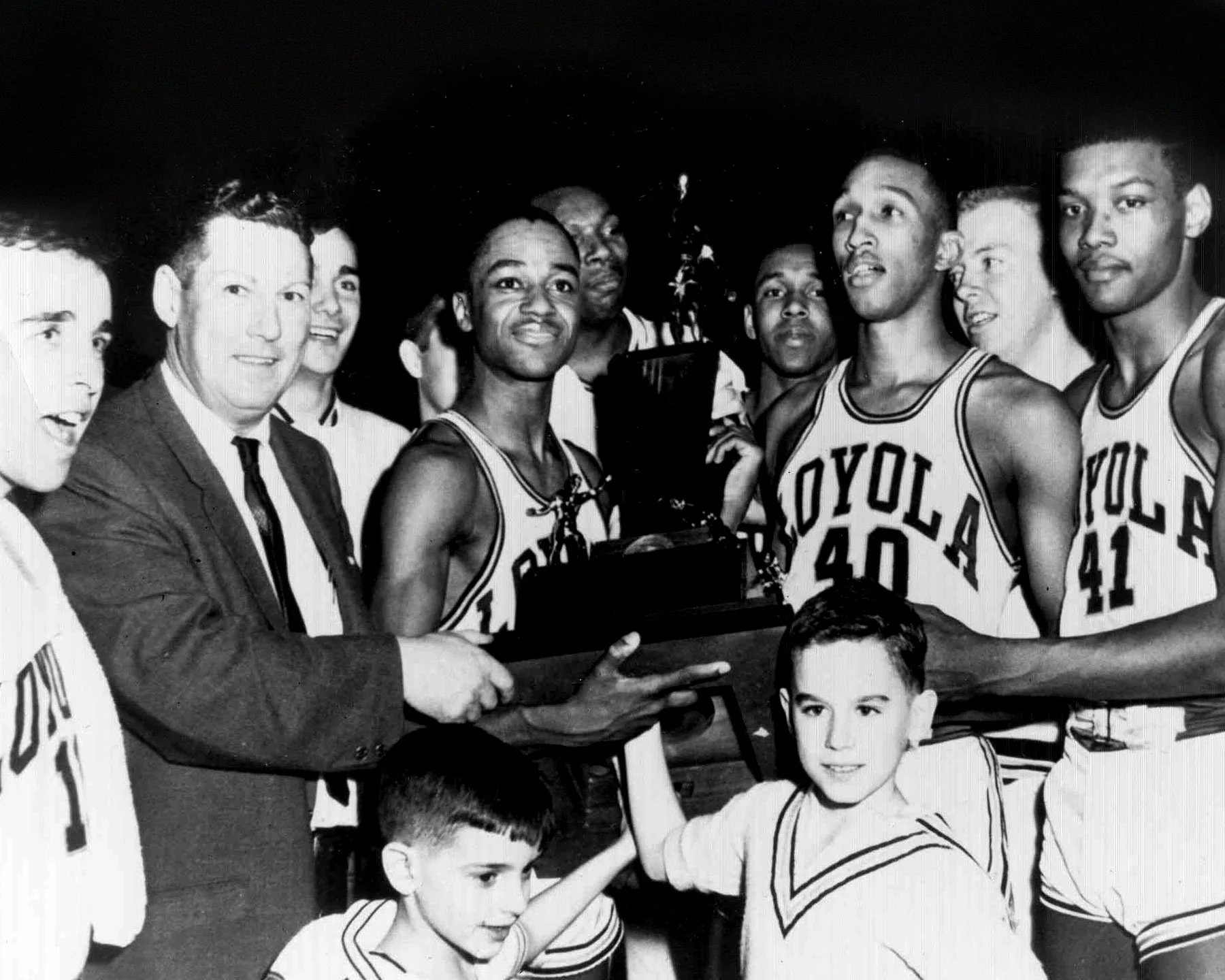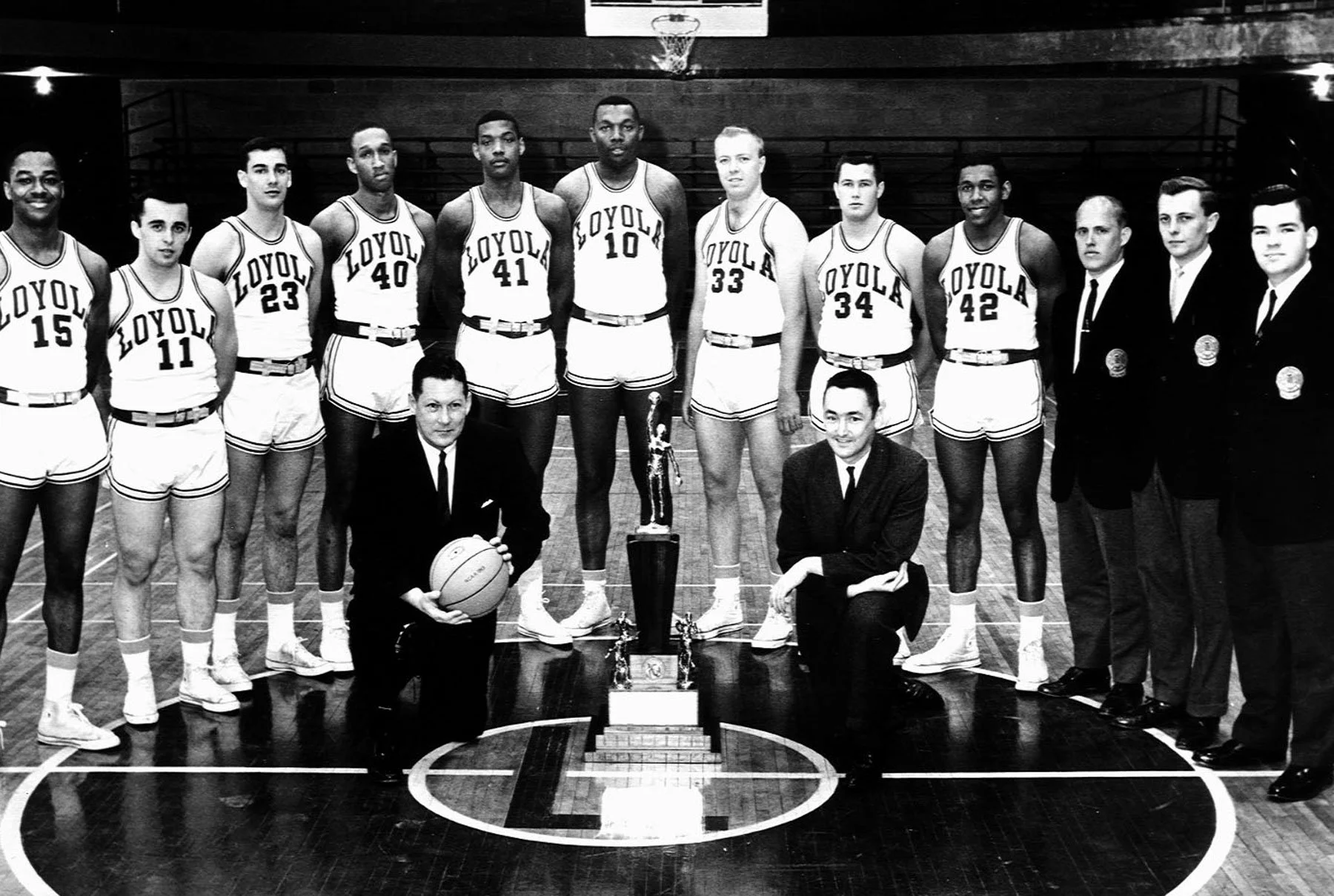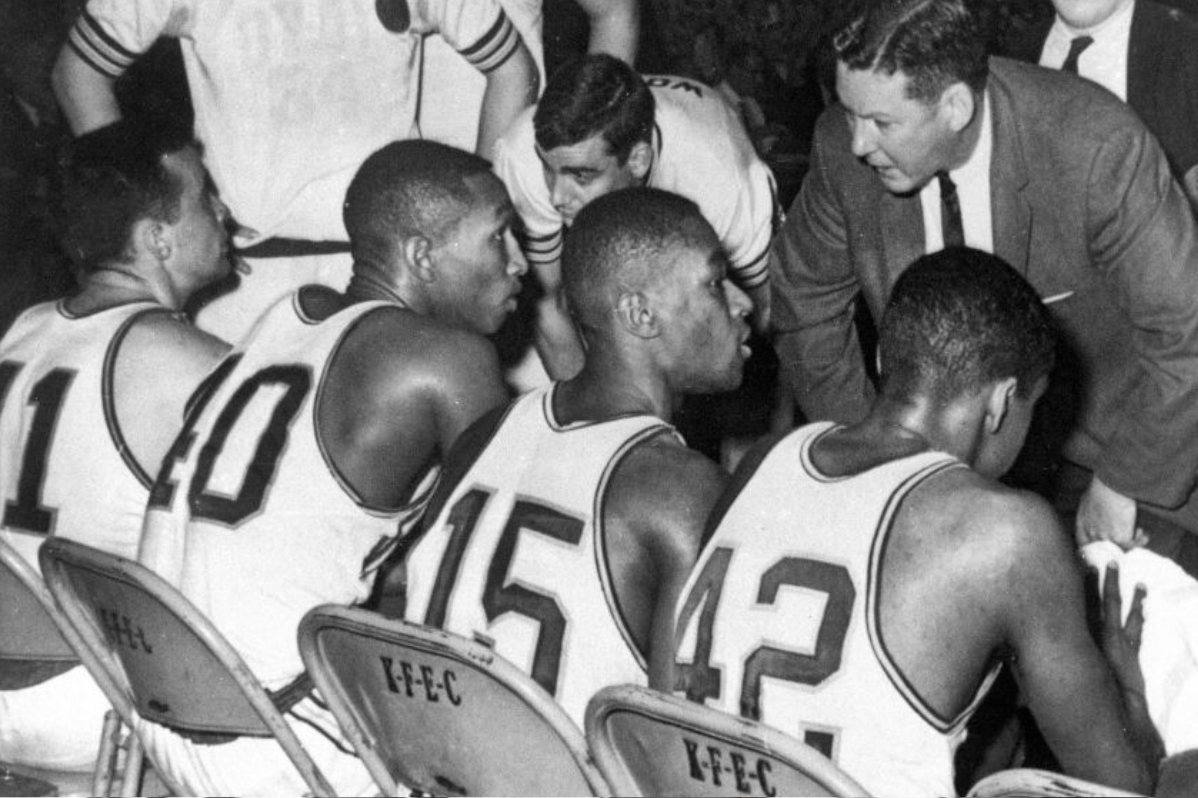In tribute to Coach Ireland, we have named the pub in his honor. Below is an insight into his remarkable story:
“The Game of Change”
It was a significant moment in sports history between Loyola University Chicago and Mississippi State College, reflecting the fight against segregation and the role of Coach George Ireland in breaking racial barriers in college basketball.
In 1963, amidst the civil rights movement, Loyola University Chicago and Mississippi State College were set to face off in the NCAA tournament. But it wasn’t just any game—it was a stand against segregation. Mississippi State had previously avoided playing teams with Black players, but this time, they were determined to compete.
Coach George Ireland, Loyola’s head coach, recruited and started Black players, a groundbreaking move in the early '60s. With a roster featuring Jerry Harkness, the Ramblers had one of the most diverse teams in college basketball, defying the norms of racial segregation in sports.
Mississippi State’s coach, Babe McCarthy, and his players defied a court injunction from the Mississippi governor to participate in the game. Sneaking out of their state under the cover of darkness, they took a stand against segregation and made history by showing up to compete.
On March 15, 1963,
The game took place in East Lansing, Michigan. Loyola, led by Coach Ireland and star player Jerry Harkness, played an intense match against Mississippi State. Loyola won 61-51, but the significance of the game went far beyond the scoreboard—it was a victory for equality and sportsmanship.
Before the game, Loyola’s Jerry Harkness and Mississippi State’s captain Joe Dan Gold shared a handshake that became an iconic symbol of unity and courage. This powerful moment showed that sports could transcend racial divides, marking the beginning of change in college athletics.
Coach George Ireland's leadership went beyond the court. By believing in the talents of all his players, regardless of race, he led Loyola to win the 1963 NCAA championship. His legacy lives on as a pioneer in breaking racial barriers in basketball, forever remembered through moments like the Game of Change.




